Partial hospitalization is an intensive, structured treatment program designed for individuals who need more support than typical outpatient care but don’t require 24-hour inpatient hospitalization. It’s often used for people dealing with severe mental health issues like depression, anxiety, PTSD, or bipolar disorder who are in crisis but not at immediate risk of harm.
At Pine Haven, this program runs Monday through Friday from 9 a.m. to 3 p.m. or Monday through Thursday from 5:30 p.m. to 8:30 p.m. Treatment typically involves individual therapy, group therapy, psychiatric care, and skills-building exercises.
Partial hospitalization is a treatment program designed for individuals who need more intensive care than traditional outpatient therapy but do not require 24-hour inpatient hospitalization. It serves as a bridge between inpatient care and outpatient services, offering patients a higher level of care in a structured and supportive environment while allowing them to return home at the end of the day. PHP is especially useful for people experiencing significant mental health challenges—such as depression, anxiety, bipolar disorder, or trauma—who may be in crisis or dealing with acute symptoms. The goal is to stabilize symptoms, provide therapeutic interventions, and help patients develop coping skills without the need for full hospitalization. Patients in PHP attend therapy sessions multiple times a week for several hours each day. While the level of care is more intensive than regular outpatient therapy, it still allows for greater independence than inpatient treatment, which is typically reserved for those at immediate risk of harm or those who need constant supervision. By offering this “middle ground,” PHP provides the necessary support for individuals who require more structured help but also want to maintain their daily routines and responsibilities.
Both Partial Hospitalization Programs (PHPs) and Intensive Outpatient Programs (IOPs) are outpatient treatment options, but there are key differences in the intensity of care. Although both programs typically last between 30 and 90 days, and offer similar therapeutic services—including individual therapy, group counseling, medical care, and case management—the level of commitment and intensity differs. PHPs are more intensive, requiring a higher number of hours per week—usually upwards of 20 hours. In contrast, IOPs generally offer a less demanding schedule, typically involving at least 9 hours of weekly programming, often split into three 3-hour sessions. While both types of programs are ideal for individuals who don’t need full-time, inpatient care, IOPs tend to be more flexible. This makes IOPs a practical option for people who may have personal or work obligations that make committing to the more demanding schedule of a PHP difficult.
At Pine Haven, we believe everyone deserves compassionate support on their journey to better mental health. Our team provides comprehensive assessments, personalized treatment, and a welcoming environment where healing begins.
Partial Hospitalization Programs (PHPs) offer intensive care similar to inpatient treatment but with more flexibility, allowing patients to return home in the evenings.
While the specific components of PHPs can vary, here’s a look at the typical services and therapies provided:
PHPs often utilize various evidence-based therapies to address mental health conditions. Cognitive Behavioral Therapy (CBT) is a cornerstone treatment, helping patients recognize and change harmful thought patterns and behaviors. Dialectical Behavior Therapy (DBT) is another commonly used approach, especially for those struggling with emotion regulation, self-harm, or suicidal thoughts. Together, these services and therapies provide a well-rounded, intensive treatment experience aimed at stabilizing patients, managing symptoms, and equipping them with the tools to navigate life with better mental health.
Partial Hospitalization Programs (PHPs) offer a range of advantages for individuals struggling with mental health conditions, providing intensive treatment while allowing patients to maintain a level of independence. Some benefits of PHP include:
PHPs provide a higher level of care than traditional outpatient therapy, offering a structured daily schedule with intensive therapeutic support. However, unlike inpatient programs, patients are able to return home in the evenings, allowing them to maintain some normalcy and independence while still receiving comprehensive care.
PHPs focus heavily on helping patients develop coping strategies and life skills that can be applied to everyday situations. This includes learning techniques for managing stress, improving emotional regulation, enhancing communication skills, and building resilience to handle future challenges.
Group therapy is a core component of PHP, allowing patients to connect with others facing similar mental health challenges. Sharing experiences and learning from peers can reduce feelings of isolation and provide a strong sense of community, which is essential for healing.
Since PHP patients live at home or in a supportive environment during treatment, they can maintain daily responsibilities like work, school, or family obligations. This flexibility allows them to integrate their treatment into their lives, making it easier to balance recovery with personal commitments.
For individuals who are at risk of worsening symptoms or relapse, PHP can provide the intensive care needed to prevent hospitalization. The structured, monitored environment helps stabilize patients before conditions escalate, reducing the likelihood of requiring inpatient treatment.
PHPs often involve family therapy or education sessions to engage loved ones in the recovery process. This strengthens family bonds, enhances understanding, and ensures that the patient’s support system is equipped to handle their needs once treatment ends.
PHP serves as an effective transition between inpatient treatment and less intensive outpatient care. It offers the structured support individuals need to stabilize and gradually ease back into regular life while ensuring ongoing monitoring and support during this critical phase of recovery.
To make a referral to our partial hospital program, please contact us at (833-856-7469). We work with various providers, including social workers, case managers, and therapists, to ensure a smooth and seamless patient intake process. We are here to answer any questions you may have about the process and provide additional support for those seeking treatment. Our team will work with you to ensure your loved one receives the care they need.
Pine Haven works with and accepts many insurance plans. Coverage depend on your specific policy and the length of the program. We are committed to making treatment accessible and will guide you through the financial process to ensure you fully understand all available options before starting care.
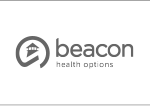
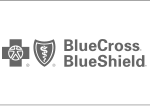
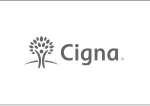
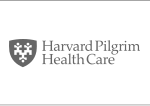
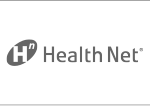
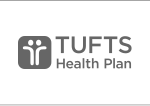
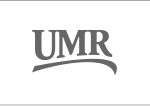
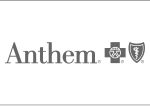
Together, we can help you build a brighter future of wellness.

Our intensive outpatient program is a step down from our PHP and provides support for individuals working through mental health problems. This program is best suited for those who wish to maintain a level of independence in their lives while in treatment.

Our outpatient program is best for those who have already completed partial hospitalization, or for those with less severe symptoms. Outpatient programs can provide ongoing care while individuals integrate back into a normal lifestyle.
We are here to provide compassionate and effective mental health treatment for all. For more information, contact us to speak with one of our caring professionals.
Pine Haven Behavioral health is a mental health treatment center dedicated to providing comprehensive and individualized care for those struggling with mental health issues.